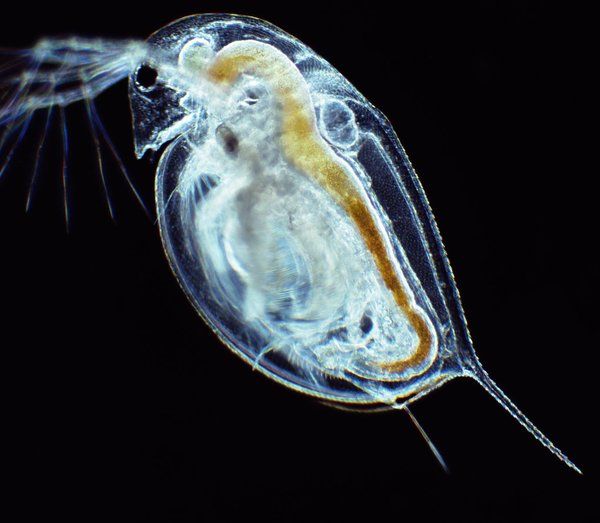
Some living things can be held in a suspended animation of sorts and be "resurrected" long afterward. Plant seeds are the most common example, and the brine shrimp capsules that develop into "sea monkeys" are a familiar animal example of cryptobiosis.
A shrimp called Daphnia is more commonly known as a water flea. Their egg cases can develop into water fleas months later, or they can sink into the sediment of lake bottoms, where they remain dormant. Evolutionary ecologist Lawrence J. Weider developed a method for resurrecting these eggs after years of dormancy. He hatched a plan to dig up old Daphnia eggs from the bottom of Minnesota lakes and compare the resulting animals to current populations, to see how the changing environments of the lakes (which were well documented) led to any differences in the water fleas. The results of the experiment are fascinating. But that's not what's most mind-boggling about this story.
To gather the animals, Dr. Weider and his colleagues took a boat out on the lakes. “It’s a smaller version of a party barge, with a hole cut out of the deck,” he said.Read about the 700-year-old shrimp and what they tell us about how changing environments change species in an article by Carl Zimmer at the New York Times.
Through the hole, the scientists lowered a tube and pushed it about three feet into the sediment — deep enough, Dr. Weider thought, to gather water flea eggs a few decades old.
The scientists then went back to Oklahoma, sifted the cases from the mud, and started resurrecting the animals. They also extracted Daphnia DNA, giving them more data to analyze.
Only then did Dr. Weider get an estimate for the age of the sediment in South Center Lake from another lab.
“I said, ‘Are you kidding me?'” said Dr. Weider.
The lab concluded that the bottom of the lake’s sediment core was about 1,600 years old. The oldest eggs that Dr. Weider and his colleagues had successfully hatched were about 700 years old.

No comments:
Post a Comment